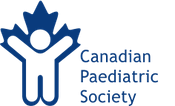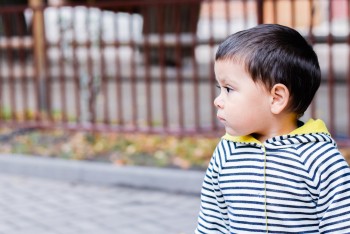What we can do for separated migrant children in the U.S.
Tony Barozzino, MD, Toronto, Ont.
Mahli Brindamour, MD, Saskatoon, Sask.
Chuck Hui, MD, Ottawa, Ont.
This op-ed first appeared in The Globe and Mail.
As pediatricians, we spend our lives trying to make children better. Like so many Canadians, we’ve been horrified to watch the egregious treatment of migrant children at U.S border crossings—separating babies and toddlers from loving parents, confining boys within chain-linked pens, vilifying parents seeking asylum from persecution who want nothing more than to give their children a better life in a new land.
Those of us who work with refugee children and youth know the lasting toll that migration can take, even under less horrific circumstances than what we have witnessed in recent weeks. Children and youth do not choose to be refugees. Families seek refuge and asylum because they feel unsafe in their home countries, often because they have already experienced trauma such as violence or targeted cruelty. Inflicting further trauma by separating them is nothing short of abuse.
The outcomes of such treatment are sadly predictable and largely preventable—anxiety, depression, post-traumatic stress disorder. The persistent toxic stress endured by these children causes biological changes that can result in lifelong damage to health and well-being.
And yet – in times of immense stress - it is a parent’s love and comfort that can buffer the dangerous toll of toxic stress. That’s why keeping families together in difficult times—ensuring that vulnerable, frightened children are always within arm’s reach of loving adults—is imperative. It is also humane, moral, consistent with the Convention on the Rights of the Child, and in the best interests of children’s physical, emotional, and mental health.
Like many other health and medical organizations, the Canadian Paediatric Society has called for an end to family separation. We are also calling for an end to the practice of detaining refugee children and families, both at the U.S. border and elsewhere.
Canadian and international research shows that children exposed to the prison-like conditions typical of immigration detention experience severe distress and fear, as well as a decline in cognitive, physical and emotional functioning that persists long after detention. These changes can occur even after only a short period of time, and like other forms of toxic stress, can have lifelong impacts. No child deserves this treatment. There is international consensus on viable community-based alternatives to immigration detention, and Canada should be a leader in this area.
Over the past year, it is estimated that more than 20,000 asylum seekers have crossed the United States border into Canada in between official ports of entry. Many feared they would be deported by the U.S. government back to their home countries. Many of these families remain in makeshift shelters, relying on minimal financial support and left to navigate and advocate for themselves through our complex health care, legal and education systems. While the Interim Federal Health Program (IFHP) provides some needed health coverage to families, there are not enough IFHP-registered providers.
In the wake of the ongoing tragedy at the U.S. border, what can Canadians expect as the summer months unfold? And more importantly, what can we do to ensure we treat children and their families with dignity, humanity, and compassion?
First, in the current political climate, the federal government can consider suspending the Safe Third Country Agreement with the United States, so that families facing persecution can seek asylum in Canada at official border points. As long as refugee children cannot be guaranteed the protections mandated by international convention, the United States cannot be considered a safe country.
Second, health professionals – including physicians and pharmacists–can open their practices to refugee claimants by becoming registered as licensed providers under IFHP. Otherwise, asylum seekers cannot receive these federally funded services.
And finally, all Canadians can advocate for humane and compassionate practices to receive and welcome newcomers to our country, regardless of how they arrive or what their status is. If we are guided by what is best for children, we will be all the more certain of taking the right path.
The authors are members of the Canadian Paediatric Society's immigrant and refugee health task force.
Copyright
The Canadian Paediatric Society holds copyright on all information we publish on this blog. For complete details, read our Copyright Policy.
Disclaimer
The information on this blog should not be used as a substitute for medical care and advice. The views of blog writers do not necessarily represent the views of the Canadian Paediatric Society.
Last updated: Jun 25, 2018

